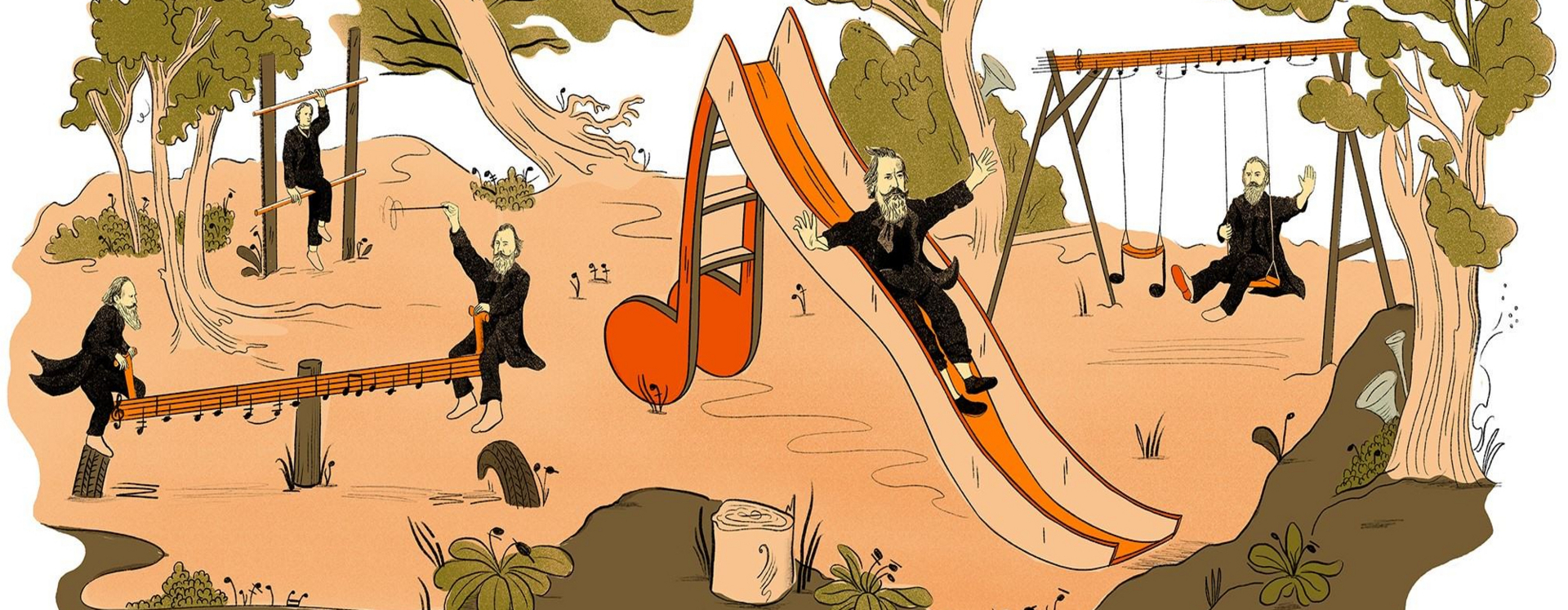Johannes Leertouwer - The Performance Practice of Brahms’ Orchestral Music in the 19th Century
In his PhD research at Leiden University violinist and conductor Johannes Leertouwer researches the performance practice of Brahms’ orchestral music in the nineteenth century. The central question of Johannes’ research is: Are there elements of the lost performance practice of the nineteenth century that we can rediscover and use to shed new light on the performance of Brahms’ music for orchestra today?
With the rise of the structuralist or modernist performance practice of the twentieth century in the 1920s and 30s, large parts of nineteenth century performance practice were discarded. Much work has been done on rediscovering the lost traditions of the nineteenth century, especially on the subjects of tempo manipulation, use of vibrato and use of portamento. Part of Johannes’ research investigates these findings as well as some new sources.
An equally important element of his research takes place in four project weeks (each third week of September 2019-2022) in which he will look to implement the old techniques. In the coming four years, all Brahms symphonies and concertos will be recorded and performed in the Stadsgehoorzaal in Leiden.
In the third part of his research, Johannes intends to take a step back and investigate the context of this kind of historically informed performance practice. He will look at its place in the larger field of performance practices of today, particularly in the educational system, and the intrinsic qualities of the post-modernist historically informed performance practice. What is it exactly that we are doing when we base our performance practice on historical information, knowing that any complete reconstruction of a historical past or truth is impossible?
More about Johannes Leertouwer's Brahms Research Project
Johannes Leertouwer
After his violin studies with Bouw Lemkes in Amsterdam and Josef Suk in Vienna and Prague, Johannes Leertouwer decided to specialize in historical performance practice. He worked as a concertmaster and soloist with a number of international period instrument ensembles and orchestras, such as Anima Eterna, and the orchestra and choir of the Netherlands Bach Society.
With the Schönbrunn Ensemble, of which he has been a member since its founding in 1987, he performs both in the Netherlands and abroad. He has also made a series of CDs with this ensemble, the most recent of which contains works by Graf, Reicha and Ries. In 2006, the Mozart year, Johannes Leertouwer was the soloist and conductor in a highly acclaimed CD-recording of the complete works for violin and orchestra by Mozart.
Additionally, Johannes Leertouwer is active as chief conductor and artistic director of the Nieuwe Philharmonie Utrecht. In September 2009, he conducted this orchestra in an exciting and much praised debut which featured a programme with Stravinsky and Ravel. In the coming years he will continue to lead the NPU in a series of concerts and special projects. The orchestra performs repertoire of the nineteenth and early twentieth century on period instruments. Carrying clearly the signature of its chief conductor, it also features an extensive educational programme.
From 1989 to 2021 Johannes Leertouwer taught violin as a principal subject at the Conservatorium van Amsterdam. Currently he teachers various electives in the master's degree programme.
Website Johannes Leeertouwer
In his first years as a teacher at the Conservatorium van Amsterdam, Johannes Leertouwer often wondered about the way in which Baroque and Classical repertoire (music from the 17th and 18th centuries) was played. Even then, Johannes already occupied himself with ‘modern’ performance practice on the one hand, and the ‘early music’ movement on the other. He was surprised that musicians from the modern practice were hardly aware of the insights of specialists in the field of early music. What he heard, was too old-fashioned, had too little expressiveness and was based too much on uniform timbre.
Later in his teaching career, he began to wonder about the way Romantic music from the 19th century was performed. Solemn and uniform in tone and tempo seemed to be the motto, even though everyone could have known that things were very different at the time the music was written.
When the Conservatorium van Amsterdam made it possible for Johannes to do a PhD research into the performance practice of Brahms’ orchestral works, he immersed himself in the lost means of expression of the 19th century. Thanks to the support of the AHK, the research did not only get a theoretical dimension, but a practical one as well. In the past years Johannes recorded all Brahms’ concertos and symphonies with his project orchestra, consisting of CvA students, alumni and teachers. The works were performed on period instruments and Johannes’ research findings were put into practice and further developed.


